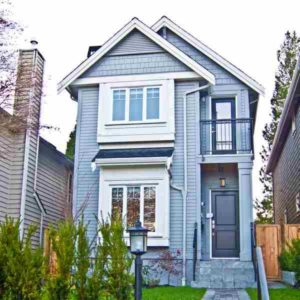The biggest real estate news last month was the Provincial budget announced February 20th. There were many initiatives aimed at the real estate market. The key points that relate to the real estate market are covered below. Many of the details of how these plans will be implemented are not yet available and it will be these details that determine whether these plans are successful.
The speculation tax coming in Fall of 2018 is the most controversial. It is going to be at 0.50% in the first year and 2% in 2019 based on the value of property. Only principal residences and long-term rented properties are exempt. The tax applies to homes in Metro Vancouver, the Fraser Valley, the Capital and Nanaimo Regional Districts, Kelowna and West Kelowna. The intent is to deter speculation but people are questioning who will end up paying for this. BC residences that have a second home will be able to use a BC tax credit to reduce their Provincial income tax to offset the speculation tax. Critics argue that this will favor high income earners currently paying a high Provincial income tax as they will have more income to offset. A fixed income retiree might not have enough income tax to offset and thus end up paying more taxes as a result. Worse is that Canadians who live outside BC but have a vacation home in BC will not have any exemptions. Lumping these people into a “speculation tax” does not seem to be fair as they are not speculators. How about a sales tax that is reduced the longer you hold on to the property? After five years, it goes to zero? The government have not indicated the size of the tax credit and the public outcry may affect its eventual implementation.
The foreign buyers tax has increased to 20% and have expanded to other major regions to prevent the speculation to move to surrounding regions. The tax will now apply to the Capital Regional District, the Fraser Valley, the Central Okanagan and the Nanaimo Regional district.
There will be a registry set up to track beneficial ownership of properties. Previously, foreign owners can hide their ownership with the use of holding companies, trusts and stand-in owners.
A pre-sale purchase database will be set up to track assignments so that they are taxed accordingly.
The property transfer tax on homes over $3M will increase to 5% on portion above 3 million dollars.
Starting 2019 School tax rate on homes over $3 million is set to increase also.
Home owners grant to be reviewed “for fairness”.
The combined effects will be negative to the real estate market in terms of activity and possibly price. February statistics already show a slowing down though it would be hard to say how much the announcements have affected the February numbers. The total sales volume released by the Real Estate Board of Greater Vancouver shows a 9% decline from last February and is 14.4% below the 10-year February sales average.
While the sales-to-new listing still show a high demand for condos and attached housing (59.7% and 37.6% respectively), sales volumes have dropped across all property types. Compared to last February, the sales of detached properties have dropped 16.6%, the sales of condos dropped 7.1% and the sales of attached properties dropped 0.7%. However, for most part the price has held up as compared to 12 months ago. The price of condos has increased 24.2%. The price of attached housing was up 13.4% while detached houses have dropped 1.2%.
The price action is always slower going down then going up. This spring market will be a true test of the sentiment in the housing market and a reflection of the perception of all the new changes. If there is truly a large proportion of foreign buyers holding our properties, I can see the new changes driving prices down as they sell off their holdings.
I will be keeping a close eye on the market. Stay tuned!
Enjoy your spring break. Cheers!
Alternative lending.ca help people by providing options beyond regular bank lending. We operate out of Vancouver, BC, but can assist people in all of BC and selected locations in Alberta, Manitoba, Saskatchewan and Ontario.



